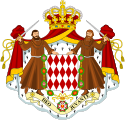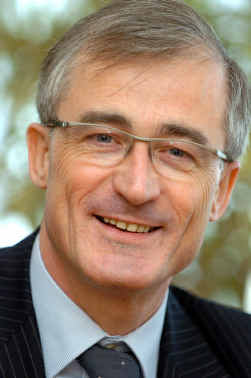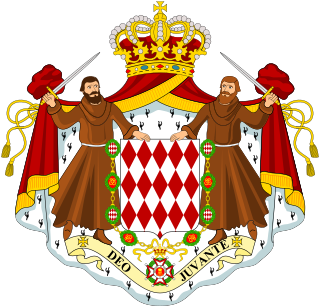 |
|---|
General elections were held in Monaco on 4 July 1937 to elect five members of the National Council. The national councilmen were elected by a 30-member Electoral College.
 |
|---|
General elections were held in Monaco on 4 July 1937 to elect five members of the National Council. The national councilmen were elected by a 30-member Electoral College.
The 30-member Electoral College consisted of nine members elected by the Communal Council and 21 members elected by voters. It also had substitute members elected by the Communal Council and six substitute members elected by voters.
The Communal Council held an election for nine members and three substitute members of the Electoral College on 12 June 1937.
| Candidates | Votes | |
|---|---|---|
| Members | Robert Boisson | 12 |
| Louis Auréglia | 11 | |
| Paul Bergeaud | 11 | |
| Édouard Giordano | 11 | |
| Baptiste Gastaud | 10 | |
| Marcel Médecin | 9 | |
| Roger-Félix Médecin | 8 | |
| Victor Rigazzi | 8 | |
| Michel Ravarino | 7 | |
| Substitute members | Eugène Marquet | 9 |
| Georges Sangiorgio | 8 | |
| Louis Settimo | 8 | |
| Source: [1] | ||
An election of the remaining 21 Electoral College members and six substitute members was held on 13 June 1937.
| Candidates | Votes | |
|---|---|---|
| Members | Robert Marchisio | 492 |
| Arthur Crovetto | 491 | |
| Pierre Blanchv | 490 | |
| Henri Médecin | 489 | |
| Henri Olivié | 489 | |
| Joseph Raimbert | 489 | |
| Jules Balestra | 488 | |
| Étienne Destienne | 488 | |
| Joseph-Sadi Olivié | 488 | |
| Auguste Crovetto | 486 | |
| François Marquet | 486 | |
| Jean Melin | 485 | |
| Robert Sanmori | 484 | |
| Jean Campana | 483 | |
| Marcel Kroenlein | 483 | |
| Jean Scorsoglio | 483 | |
| Louis Briano | 482 | |
| Michel Porasso | 482 | |
| Emile Testa | 482 | |
| Auguste Boin | 481 | |
| Joseph Icardi | 481 | |
| Substitute members | Joseph Bertrand | 488 |
| Albert Costa | 488 | |
| Barthélemy Otto | 487 | |
| Barthélemy Isoard | 486 | |
| Louis Elena | 485 | |
| Bernard Biancheri | 484 | |
| Valid ballots | 615 | |
| Invalid ballots | 16 | |
| Total ballots | 631 | |
| Registered voters | 879 | |
| Source: [1] | ||
| Candidates | Votes | ||
|---|---|---|---|
| Louis Auréglia | 30 | ||
| Pierre Blanchy | 30 | ||
| Jean Ciaïs | 30 | ||
| Arthur Crovetto | 30 | ||
| Jean-Maurice Crovetto | 30 | ||
| Eugène Gindre | 30 | ||
| Robert Marchisio | 30 | ||
| François Marquet | 30 | ||
| Roger-Félix Médecin | 30 | ||
| Henri Settimo | 30 | ||
| Étienne Destienne | 29 | ||
| Marcel Médecin | 29 | ||
| Source: [2] | |||

Since becoming independent of the United Kingdom in 1970, Fiji has had four constitutions, and the voting system has changed accordingly.

Elections in Venezuela are held at a national level for the President of Venezuela as head of state and head of government, and for a unicameral legislature. The President of Venezuela is elected for a six-year term by direct election plurality voting, and is eligible for re-election. The National Assembly (Asamblea Nacional) has 277 members (diputados), elected for five-year terms using a mixed-member majoritarian representation system. Elections also take place at state level and local level.

Elections in Botswana take place within the framework of a multi-party democracy and a parliamentary system. The National Assembly is mostly directly elected, and in turn elects the President and some of its own members. The Ntlo ya Dikgosi is a mixture of appointed, hereditary and indirectly elected members.

Elections in Gabon take place within the framework of a presidential multi-party democracy with the Gabonese Democratic Party, in power since independence, as the dominant party. The President and National Assembly are directly elected, whilst the Senate is indirectly elected.
Elections in Luxembourg are held to determine the political composition of the representative institutions of the Grand Duchy of Luxembourg. Luxembourg is a liberal representative democracy, with universal suffrage guaranteed under its constitution. Elections are held regularly, and are considered to be fair and free.

Elections in Togo take place within the framework of a presidential system. Both the President and the National Assembly are directly elected by voters. Togo is a one party dominant state with the Union for the Republic in power.

The Federal National Council (FNC) of the United Arab Emirates (UAE) is an advisory quasi-parliamentary body in the UAE. The FNC consists of 40 members. Twenty of the members are indirectly elected by the hand-picked 33% of Emirati citizens who have voting rights through an electoral college, while the other twenty are appointed by the rulers of each emirate. According to Reuters, "the process of selecting the people who can either elect or be elected is opaque."

Matete is one of the 24 communes that are the administrative divisions of Kinshasa, the capital city of the Democratic Republic of the Congo.
Parliamentary elections were held in the United Arab Emirates on 3 October 2015 to elect 20 of the 40 members of the Federal National Council. The elections took place through an electoral college, which was expanded from 129,274 members in the 2011 elections to 224,279 for the 2015 elections.
The 1991 Monegasque municipal elections were held on 10 and 17 February to elect the 15 members of the Communal Council of Monaco.

An election was held on 26 May 2019 in the three Belgian constituencies to elect the Belgian delegation to the European Parliament. It was part of the 2019 European Parliament election.

Elections were held on November 2, 1937 to fill the New York City Council, which had just been formed to replace the New York City Board of Aldermen. The new Council comprised 26 members elected via proportional representation by borough, in contrast to the 65-member Board of Aldermen elected by district. This was done in response to the large majorities the Democrats often received in the Board of Aldermen. Each borough was entitled to one member of the council for each 75,000 votes cast, and an additional member for each remainder greater than 50,000. Due to voter turnout, Brooklyn was entitled to nine members of the Council, Manhattan six, Queens and The Bronx five each, and Richmond one.

General elections were held in Monaco on 23 April 1911 to elect the 21 members of the National Council. A total of 20 candidates participated in the election. Out of the 629 registered voters, 524 voters cast their ballots.

General elections were held in Monaco on 19 May 1918 to elect the 12 members of the National Council. The national councilmen were elected by a 30-member Electoral College.

General election were held in Monaco on 16 June 1929 to elect the 12 members of the National Council. The national councilmen were elected by a 30-member Electoral College.

General elections were held in Monaco on 16 July 1933 to elect the 12 members of the National Council. The national councilmen were elected by a 30-member Electoral College.

General elections were held in Monaco on 5 February 2023. The result was a landslide victory for the governing Monegasque National Union led by Brigitte Boccone-Pagès, which won all 24 seats on the National Council. The new council was sworn in on 16 February.

General election were held in Monaco on 8 May 1921 to elect five members of the National Council. The national councilmen were elected by a 30-member Electoral College.

General election were held in Monaco on 21 May 1922 to elect 12 members of the National Council. The national councilmen were elected by a 30-member Electoral College.

General election were held in Monaco on 18 April 1926 to elect 12 members of the National Council. The national councilmen were elected by a 30-member Electoral College.